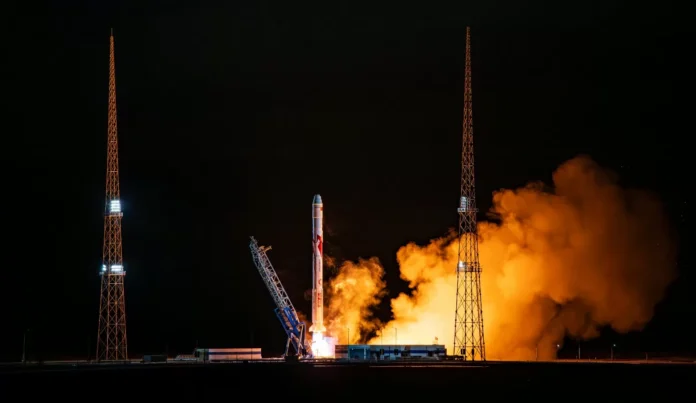A Chinese firm has recently made headlines in the space industry with its ambitious plans for a 10,000-satellite constellation. The company, which is linked to the renowned commercial rocket maker Landspace, has filed a notification with the International Telecommunication Union (ITU) for this groundbreaking project. This news has sparked excitement and curiosity among space enthusiasts and experts alike.
The ITU is a specialized agency of the United Nations responsible for coordinating global telecommunication operations and services. It also plays a crucial role in managing the use of radio frequencies and satellite orbits. The notification filed by the Chinese firm indicates its intention to launch and operate a constellation of 10,000 satellites, which is a significant number compared to the current number of active satellites in orbit.
This move by the Chinese firm is a testament to the country’s growing presence and advancements in the space industry. China has been making significant strides in the space sector in recent years, with successful launches of rockets, satellites, and even a rover on the far side of the moon. This latest development further solidifies China’s position as a major player in the global space race.
The 10,000-satellite constellation proposed by the Chinese firm is expected to provide a wide range of services, including broadband internet, Earth observation, and communication services. With such a vast number of satellites in orbit, the constellation will be able to cover every corner of the globe, providing high-speed internet and other services to even the most remote areas.
One of the most significant advantages of this constellation is its potential to bridge the digital divide. Many parts of the world, especially in developing countries, still lack access to reliable internet services. With this constellation, the Chinese firm aims to provide affordable and high-speed internet to these underserved areas, bringing them into the digital age and unlocking new opportunities for economic growth and development.
Moreover, the constellation will also have a significant impact on the Earth observation sector. With a large number of satellites in orbit, the Chinese firm will be able to capture high-resolution images of the Earth’s surface, monitor weather patterns, and track changes in the environment. This data will be invaluable for various applications, including disaster management, agriculture, and urban planning.
The proposed constellation will also have a positive impact on the communication sector. With the increasing demand for data and connectivity, the current communication infrastructure is under immense pressure. The 10,000-satellite constellation will help alleviate this pressure by providing additional bandwidth and improving the quality of communication services.
The news of the Chinese firm’s plans for a 10,000-satellite constellation has been met with excitement and optimism in the space industry. This project has the potential to revolutionize the way we use and access space-based services. It also opens up new opportunities for collaboration and partnerships between different countries and companies, leading to further advancements in the space sector.
However, as with any ambitious project, there are also concerns and challenges that need to be addressed. One of the main concerns is the potential increase in space debris. With such a large number of satellites in orbit, there is a higher risk of collisions and the creation of more debris, which could pose a threat to other spacecraft and satellites in orbit.
To address this concern, the Chinese firm has stated that it will adhere to international guidelines and regulations for space debris mitigation. This includes deorbiting satellites at the end of their operational life and implementing collision avoidance measures.
In conclusion, the Chinese firm’s notification to the ITU for a 10,000-satellite constellation marks a significant milestone in the country’s space ambitions. This project has the potential to bring about a positive impact on various sectors, including communication, Earth observation, and bridging the digital divide. It also showcases China’s growing capabilities and contributions to the global space industry. With proper planning and implementation, this constellation could be a game-changer in the space sector, opening up new possibilities and opportunities for the future.

